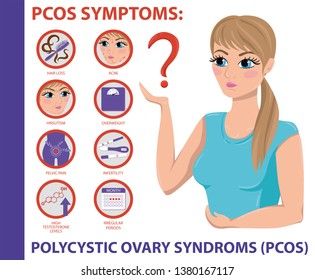PCOS Explained: Symptoms, Causes, and Treatments
Polycystic Ovary Syndrome (PCOS) is a common hormonal disorder among women of reproductive age. It is characterized by irregular periods, excess androgen levels, and polycystic ovaries. PCOS can lead to various symptoms and complications, affecting a woman’s overall health and well-being.
Symptoms of PCOS
Irregular periods
Excess hair growth (hirsutism)
Acne and oily skin
Weight gain or difficulty losing weight
Difficulty getting pregnant
Thinning hair or hair loss
Darkening of the skin, especially along neck creases, in the groin, and underneath breasts
Causes of PCOS
The exact cause of PCOS is still unknown, but hormonal imbalances and genetics are believed to play a significant role. Insulin resistance, excess androgen production, and inflammation are also thought to contribute to the development of PCOS.
Treatments for PCOS
There is no cure for PCOS, but various treatments can help manage the symptoms and reduce the risk of complications. Lifestyle modifications, such as maintaining a healthy diet, exercising regularly, and managing stress, can improve hormonal balance and alleviate symptoms.
Medications, such as birth control pills, anti-androgen drugs, and insulin-sensitizing agents, may be prescribed to regulate menstrual cycles, reduce androgen levels, and manage other symptoms of PCOS. In some cases, surgery may be recommended to treat specific complications of PCOS, such as ovarian cysts or infertility.
Conclusion
PCOS is a common hormonal disorder that can have a significant impact on a woman’s health and quality of life. By understanding the symptoms, causes, and treatments of PCOS, women can take proactive steps to manage their condition and improve their overall well-being. If you suspect you may have PCOS, consult with a healthcare provider for proper diagnosis and personalized treatment options.
Remember to consult with a qualified healthcare provider for personalized advice and treatment options tailored to your individual needs. With the right approach, PCOS can be effectively managed, allowing women to lead healthy and fulfilling lives.


